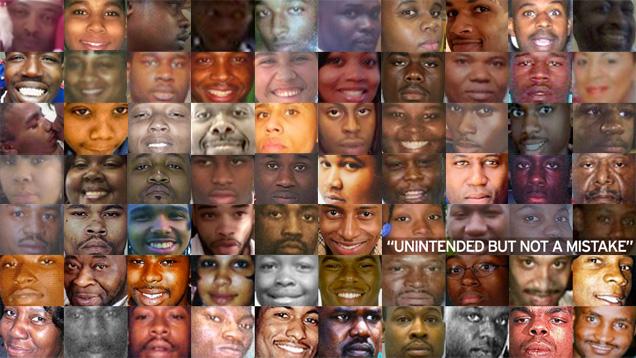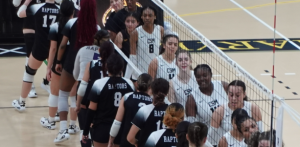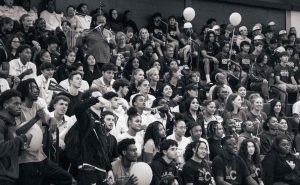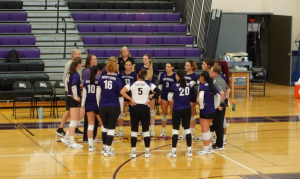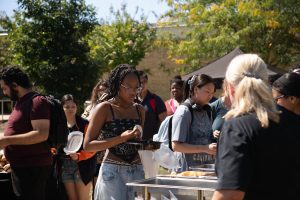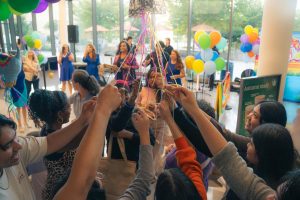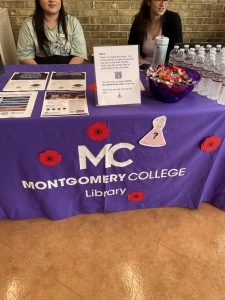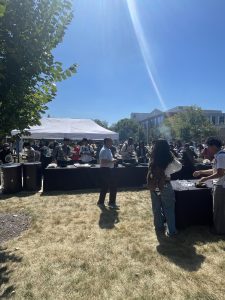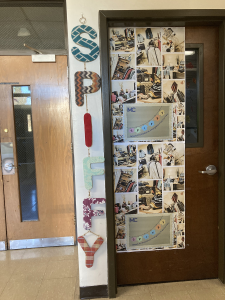How Police Brutality Impacts Us All
Pictures of black men and women killed by the police in 2015-2016. Photo provided by: Rich Juzwiak and Aleksander Chan of gawker.com
September 28, 2016
In light of recent news you may have found strikingly similar to other previous incidents. It’s beginning to become apparent (if it wasn’t already before) that there is an immediate need for concession between the police force of this country and the citizens they are sworn to protect.
Every few months for the past few years, the public has been made aware of a tragic incident between a police officer(s) and a citizen usually resulting in the loss of life of said citizen. Said citizen is usually a citizen of color.
Whether you agree or disagree with the police tactics used to de-escalate these situations, I’m sure that we all can reach a general consensus that the death of fellow citizens should be avoided at all costs. Many of these altercations between the police and these young men and women of color have lead to tremendous uprisings all across the nation; some peaceful, some not so peaceful. After all, these are people who belong to a family. Every time the police take a life, they are taking somebody’s son, husband, daughter, brother, mother, etc.
To remain completely objective, you could murmur a quiet prayer for our country or simply hope that things get better and continue about your life. After all, you have plenty of things going on that affect you more directly each day. But, as it pertains to you in your daily life, this issue of police brutality may relate to you more closely than you think.
You, as a Montgomery College student, are apart of a community of vibrantly diverse students and faculty from all different backgrounds. Racial divisions might not seem prevalent here. However, as part of a community that expands its borders far beyond the outskirts of Rockville, Maryland, we cannot concern ourselves only with the issues that affect us immediately. As a person, we are bound by the irrevocable traits that make us all human. During times of peril and adversity, we as one united force, come together to rehabilitate each other like after September 11th and the floods in New Orleans.
As you grow, you might find that it is harder to envision your life within the boundaries of one town or one community. You will begin to look at your life on a global scale. Where in the world will I go? Who will I meet? What new experiences might I endure? Black men and women in this country do not feel safe. They do not feel protected by the people who are meant to protect them. There is nothing left for them to do to be avoid being shot, there are no more places they can go to avoid being killed.
The past few years we have learned that all of the following could result in your death if you are an African-American man, woman or child: walking home, sitting in a park, failing to properly use a traffic signal, selling CD’s at a corner store, being in your house, being suspected of selling loose cigarettes, reaching to obtain your ID after being instructed to do so by police, being in Walmart, being in possession of a legal switchblade, having a stalled engine on the side of the road, having a broken taillight and holding a pill bottle.
One of the great things that separates the United States from other countries in the world with oppressive, authoritarian governments is that when there is injustice in our society we not only have the right to address it, but also to correct it. If there is a flaw in any area of the society we live in, we are allowed to take action, and that is not a privilege that should be taken lightly.
We all live in one community within one state within one country within one world. It’s more than a right, it’s a responsibility to make the human experience as peaceful as we possibly can for each other. Racial division will continue to hinder the camaraderie we are trying to achieve. Imagine if it was you or your family who felt unsafe. If you are feeling unsympathetic, an easy way to evoke sympathy is to try put yourself in the other person’s shoes. You may not look like any of the people who are losing their lives and that may make it difficult to feel sensitive, but for me, Trayvon Martin and Tamir Rice do not look that much different than my brothers.
Yesterday, Dr. Pollard moderated a police and community forum at the Takoma Park/Silver Spring campus. Here’s a clip, courtsey of MCTV.


